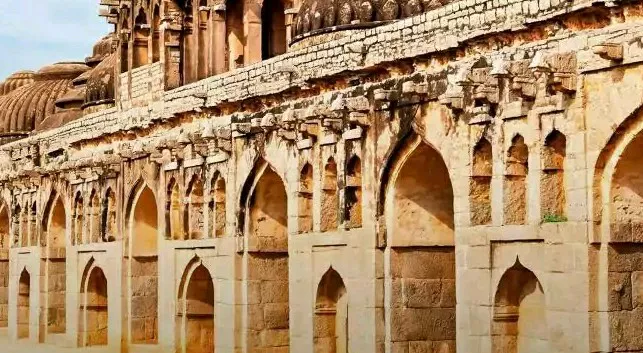A King's City
About two hundred years ago, an old king called Rajavarman ruled over a kingdom in the north of Kerala. Rajavarman’s kingdom was not a very large one but it was very prosperous. He had ruled it over for nearly forty years and all the time he had worked very hard for his people. Till old age overtook him, he had gone on regular tours of his kingdom to see for himself how his subjects lived and whether his officers are doing their work properly. His people were hard-working and contented, and had a sense of humour which helped them to bear their troubles cheerfully. Rajavarman did not burden them with heavy taxes because he did not have wasteful habits, nor was he fond of going to war with his neighbours. Every year he set apart large sums of money to dig tanks and wells, to make new roads and to plant shady trees flanking them, to put up rest houses for travellers and pilgrims and to encourage poets and musicians. On his own person and his court, he spent moderately: he did not believe in pomp and empty show.
The kingdom had a stroke of good fortune early in Rajavarman’s reign. It was the coming of merchants from Arabia o daring voyages across the sea to Kozhikode, the capital city. The Arabs brought gold and precious stones with them and wanted timber and spices in exchange. The king saw the advantage of allowing the rich Arab merchants to trade in his kingdom. He offered them special terms and gave them free land to build warehouses. He collected only a fare tax on their profits. All this encourage the Arabs to do more trade and the increased trade brought in more money to the royal treasury.
So, King Rajavarman should have been happy in his old age. He could look back on a long and useful reign. He was leaving his kingdom stronger and richer than it was when he came to the throne.
But the king, who had been ailing for some time in his palace, was deeply troubled in mind. It was not the thought of death that made him sad; he was too much of a soldier to fear death. He was worried about his only son, Ravivarman. The young prince had lost his mother when he was seven. His father had been too busy with the affairs of the kingdom to give him the attention he needed, and the prince had been spoilt by the palace servants. He had grown up into a wilful, easy-going and rather reckless young man. He was not very interested in the difficult task of government. He kept bad company; the crowd of wasters and good-for-nothings that he had gathered round himself only made him go downhill faster. Every day there were whispers in the palace of the dark deeds of the prince. Rajavarman had heard of his son’s misdeeds and had spoken to him about it, but the prince had gone on doing just what he liked.
‘What is going to happen to this country with such a king to govern it? Is my son going to tear down all that I have built up?’ Rajavarman said to himself.
His...




